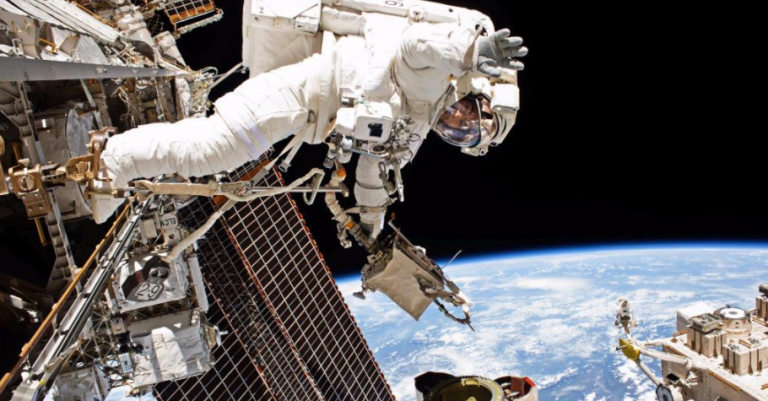Russian cosmonauts have discovered bacteria living outside the International Space Station (ISS). As these bacteria were not in the outer hull when the liveable satellite was launched in 1998, this is particularly strange.
The ISS hull samples were collected with a cotton swab during a spacewalk by the Russian space program. Cotton swabs were collected from parts of the space station where fuel wastes are discharged during engine operations.

Astronaut during a space walk.
After these samples were sent back to Earth, the scientists discovered something curious. "It turns out that somehow these samples reveal bacteria that were absent during the launch of the ISS module," said Russian cosmonaut Anton Shkaplerov. "That is, they came from outer space and settled along the outer surface. They are being studied so far and they do not seem to pose any danger, "he added.
The origin of the microorganisms is not yet fully confirmed, however, it is unlikely to be any kind of extraterrestrial bacteria. Bacteria were probably brought to the ISS through tablets or PCs from the team and other equipment that were contaminated with terrestrial bacteria.
However, even if they are not ETs, this is still a fascinating find. The cosmonauts also showed that terrestrial bacteria managed to survive outside the space station despite being in the space vacuum for several years, at an altitude of up to 435 kilometers in low Earth orbit
It's also worth remembering that temperatures fluctuate wildly at the space station. The temperatures in the ISS can vary between 121 ° C on its sunny side and below -157 ° C on the dark side.
Scientists are always interested in learning about bacteria and space. Just last month, the researchers published a study where they sent cultures of E. coli, the bacteria that can give food poisoning, to the ISS. Strangely, they found that E. coli in space cultures was much more resistant to antibiotics than cultures on Earth. [IFLS]



